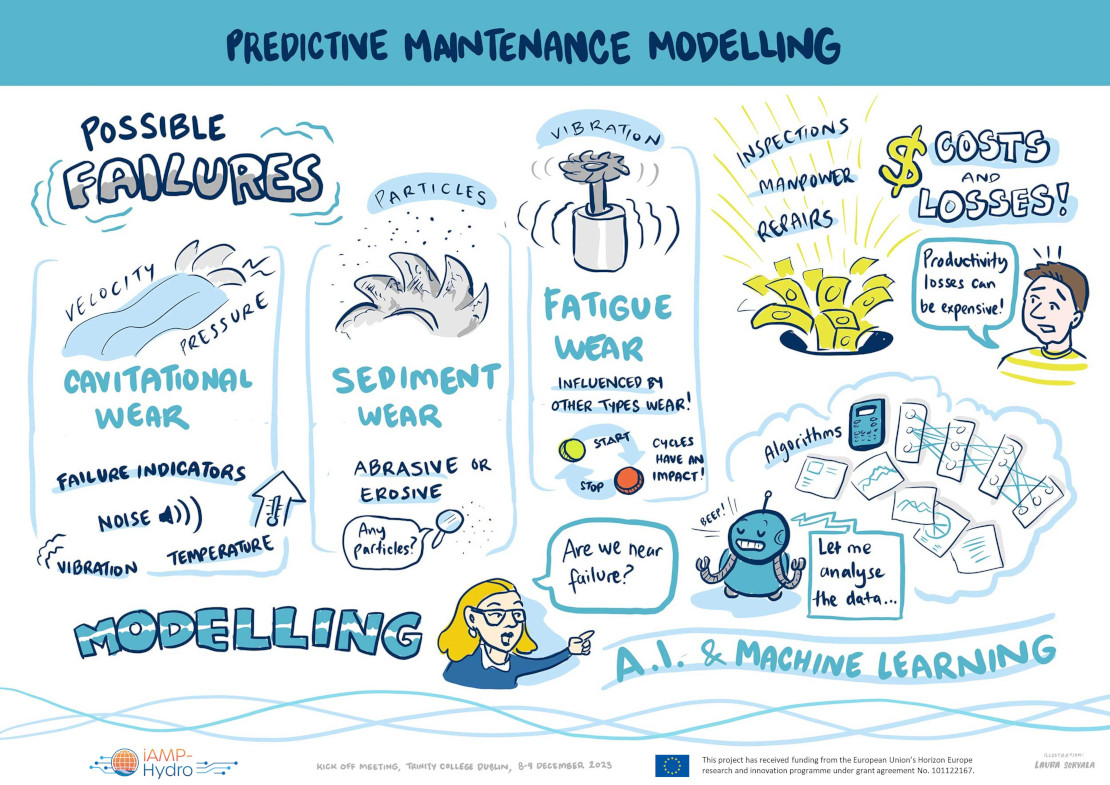
Worked on in work package 3, lead by TCD
Challenge:
WP3 confronts a significant challenge in hydropower operations—the lack of historical failure data essential for comprehensive predictive maintenance modelling. Though methods like vibration analysis, acoustic signal monitoring, and temperature tracking show promise in identifying failure mechanisms, the dearth of failure information from hydropower plants, coupled with insufficient operational data, hinders the development of effective predictive maintenance models. This scarcity of historical data curtails accurate analysis of root causes and prediction of future failure events.
Solution in prospect:
WP3 proposes a solution by focusing on the development of a precise and adaptable predictive maintenance modelling system transferable across multiple hydropower sites and settings. Leveraging vibration analysis, deep learning, and transfer learning techniques, the project aims to reduce reliance on on-site expert knowledge in complex feature extraction. The methodology includes monitoring acoustic signals, and temperature, and utilizing advanced techniques like current signature analysis, voltage signature analysis, and the enhanced Park's vector approach to separate signal spectra related to electrical and mechanical defects. To overcome the scarcity of failure information, WP3 executes three key sub-tasks: T3.1 - Failure Indicator Definitions, T3.2 - CFD Modelling of Failure and Failure Analysis, and T3.3 - Predictive Maintenance Deep Learning Algorithm. The timeline for these tasks ensures a systematic and comprehensive approach, initiating at M13 and concluding at M32. The ultimate goal is to equip hydropower operators with a robust predictive maintenance system capable of addressing diverse failure scenarios across different sites.
